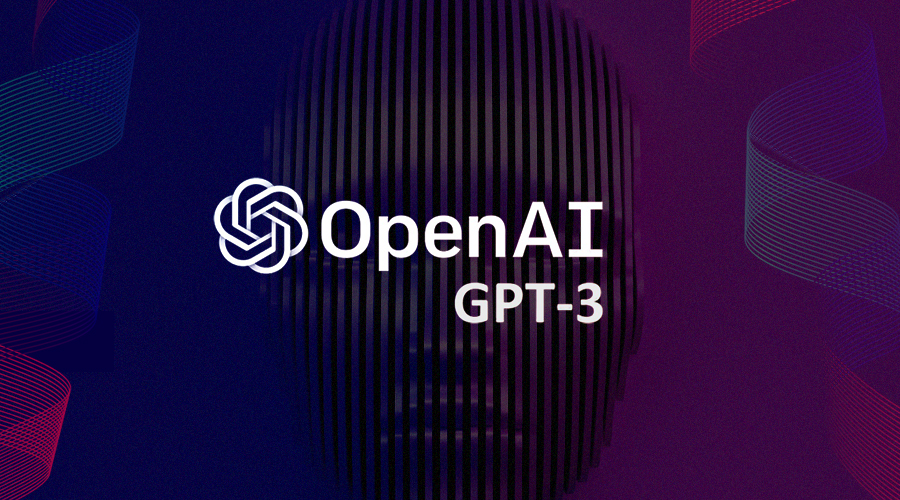OpenAI started out as a lab dedicated to studying AI. The for-profit OpenAI LP is owned and operated by the nonprofit OpenAI Inc. Founded by Elon Musk, Sam Altman, Greg Brockman, Ilya Sutskever, and Wojciech Zaremba in December 2015, the company has come a long way since its humble beginnings. The fundamental goal of OpenAI is to create and spread reliable and helpful AI (artificial intelligence). Researchers and engineers at OpenAI work on a variety of artificial intelligence (AI) projects, such as improving existing AI models, expanding the field of AI research, and spreading information on the responsible and ethical application of AI. The company freely shares its research and models with the public so that more people can take advantage of and have faith in artificial intelligence.
learn more about ChatGPT and SEO: How Google detects it and its Impact
Table of Contents
ToggleWhat is GPT-3 in OpenAI GPT-3?
OpenAI’s state-of-the-art GPT-3 (Generative Pre-trained Transformer 3) is an artificial intelligence model for understanding natural language. Since it was taught using data from throughout the Internet, it can now produce human-sounding prose in a variety of contexts and styles. Language translation and question answering are only two examples of the many uses it has been put to. In the field of artificial intelligence for languages, GPT-3 is considered to be one of the most cutting-edge models.
learn about
What Is ChatGPT? Everything You Need To Know
What’s the secret to OpenAI’s success?
There are many reasons for OpenAI’s success in developing more sophisticated AI models.
Training on a large scale:
OpenAI has access to a significant amount of data and computational capacity, allowing them to train their models on a massive scale. This is crucial for building sophisticated and precise models.
Expertise in deep learning:
In deep learning, huge neural networks are trained with a tonne of information. Because of their extensive background, the OpenAI team is well-equipped to handle such a task. Thanks to their findings, advanced models like GPT-3 were developed.
Collaboration and partnerships
Several prominent businesses and organizations are working with OpenAI to further their mutual goals. Because of this, they are able to apply their models to real-world problems and have access to more information.
Openness and transparency
OpenAI has been transparent in its operations, freely sharing both its models and research with the general public. The field of artificial intelligence can now look to each other with greater confidence and collaborate more effectively as a result.
Strong leadership and management:
OpenAI’s leadership and management team has a clear vision that has enabled the organisation maintain focus on its mission and successfully implement its plans.
How can someone make money with ChatGPT from OpenAI?
It’s possible to generate income with OpenAI’s ChatGPT and other comparable models in a number of contexts.
Making apps and selling them:
Developing and selling apps that use the ChatGPT paradigm is a viable option for making money with this system. To better serve customers, firms might purchase a custom software that uses ChatGPT to generate text for chatbots.
Creating and offering services for fine-tuning:
Offering fine-tuning services to consumers is yet another option to monetize your ChatGPT expertise. The term “fine-tuning” refers to the act of tailoring a pre-trained model to a new task or domain. Customers from a variety of fields and applications could benefit from this.
Consulting and making deals:
Consulting and business deals: OpenAI’s models may be useful for some projects, but not all businesses or individuals have the expertise or resources to implement them. These businesses or individuals may seek your advice or services if they intend to implement your models in their operations.
Building and selling models:
The model might be adapted to suit a particular application or market, and then the resulting product or service could be offered for sale.
Making data sets and selling them:
Building high-quality data sets for the purpose of training language models like ChatGPT could be a lucrative endeavour. This may take the form of textual or graphical information that can be utilised to train the model.
Monetizing content generation:
Some businesses may use ChatGPT to generate content for their website, social media, or other channels, and then monetize that content. Advertisements, sponsored articles, and affiliate links would all be viable ways to monetize the content.
Note that OpenAI has made GPT-3 accessible via its API, allowing programmers to create applications on top of it. OpenAI GPT-3 Playground is a visual interface for the GPT-3 model that can generate text.
Why OpenAI’s ChatGPT bot is a hot topic in the internet?
There is a lot of buzz about OpenAI’s ChatGPT bot on the internet because it is one of the most cutting-edge language AI models out there. Here are a few of the numerous reasons why this topic is so popular:
Human-like text generation:
ChatGPT’s ability to generate human-sounding prose for a variety of themes and forms makes it a powerful tool. This has the potential to revolutionise natural language processing, paving the path for more advanced forms of language-based technology like chatbots, apps that leverage language, and more.
Ability to change and adapt:
ChatGPT is flexible and may be adjusted to do a variety of functions, including language translation, question answering, and content creation. Thanks to its adaptability and versatility, it can be applied in many contexts. The result is a powerful tool for commercial and technological endeavours.
Training on a large scale:
ChatGPT has been trained on a massive scale, which has allowed it to become quite proficient at its task. Since a large amount of data was utilised to train the model, it is considered to be among the most effective of its kind.
Being open and available:
ChatGPT is open and accessible because OpenAI makes it available via its API, allowing programmers to create new software on top of it. OpenAI GPT-3 Playground is a graphical user interface for training the GPT-3 model and producing generated text. To a large extent due to this, the concept has gained traction with both developers and enterprises.
AI’s field is making progress:
The field of artificial intelligence is advancing; researchers, developers, and corporations have paid close attention to ChatGPT because of its potential.
ChatGPT is widely discussed online because it is a highly innovative AI model with broad potential applications that has the potential to revolutionise natural language processing.
Overall, ChatGPT is a popular topic on the internet because it is a very advanced and flexible AI model that could change the way natural language processing is done and could be used in many different fields.
Can I write whole articles or blog posts with OpenAI ChatGPT?
The quality of the writing produced by OpenAI ChatGPT varies based on the task at hand and the fine-tuning process, but it may be used to write full blog entries or essays.
ChatGPT is a powerful language model that can produce writing that sounds natural across many domains and in many forms, just as if it were written by a human. A perfect tool it is not, and its results may need tweaking. In addition to needing more information and context to make sense, it’s no substitute for human-written material.
The model may produce logical and coherent prose, but it cannot understand the full scope of the topic being discussed. Therefore, it may produce biassed or erroneous writing.
The generated information can serve as a starting point, but it should be checked and revised for correctness, consistency, and readability before being used.
The generated text must not be used to trick or mislead people, and it must be made clear that it was created by a machine and not a human, as stated in the terms of service for OpenAI’s GPT-3 API.
What’s the future of OpenAI?
Given the rapid pace of advancement in the field of artificial intelligence, it’s hard to predict what the future holds for OpenAI. However, the company is expected to keep developing innovative AI models and technologies that are in line with human values and can be put to good use in the world. Possible future areas of focus for the business include:
General AI:
OpenAI has proven it can create AI models that are both very sophisticated and versatile. The company may opt to put more effort into creating AI that can do a wider range of functions and find more widespread use.
Safety and taking charge:
As AI develops and spreads, it will be more important than ever to ensure that it is secure and able to be controlled by humans. It’s likely that OpenAI will keep investing heavily in developing AI in a responsible and safe way.
Applications and working together:
In terms of collaboration and practical applications, OpenAI has already teamed up with a number of well-known companies and organisations to create and release AI models for use in solving real-world problems. The expansion of the company’s AI models’ potential uses could necessitate future partnerships with other organisations.
Being open and telling the truth:
Truthfulness and openness: OpenAI has given the public access to its models and research by being forthright and truthful.
Research, new ideas, and development:
OpenAI’s specialists are tasked with pushing the boundaries of AI research and development forward by proposing novel approaches to old problems.
What should you know most about Elon Musk’s new company, OpenAI?
The possibility of Elon Musk’s participation in the development of OpenAI remains unproven. He was a major backer and investor in the company in its early stages, although he is no longer connected with it. Founder Wojciech Zaremba, along with Elon Musk, Sam Altman, Greg Brockman, Ilya Sutskever, and Sam Altman, established OpenAI in December 2015.
OpenAI is a research organisation whose goal is to encourage the responsible and ethical development of AI. The company’s declared goal is the creation and widespread use of “friendly AI,” or AI that is in line with human values and can be taught to act in a positive way with human guidance. OpenAI has developed various state-of-the-art AI models, such as GPT-3, which is among the most sophisticated AI models for language processing at present.
The company also aspires to advance the field of artificial intelligence by disseminating its own research results and models. OpenAI is working with many different groups to improve its AI models and put them to use in the real world, tackling problems in areas like natural language processing and robotics.
Overall, OpenAI is a formidable force in AI research and development, and the effects of its work could be felt across a wide range of fields and applications.



